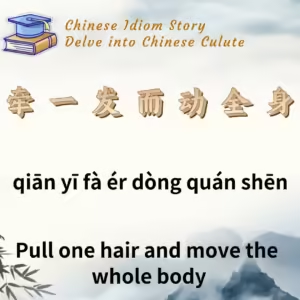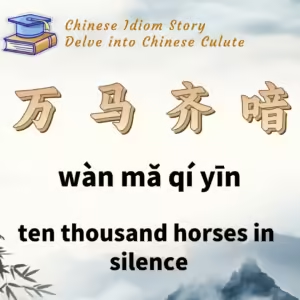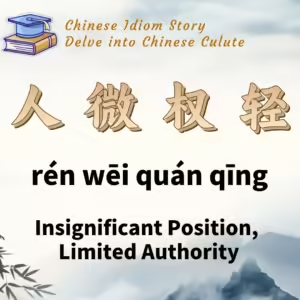
Chinese Idiom: 牵一发而动全身 (Qian Yi Fa Er Dong Quan Shen)
English Translation: Pull one hair and move the whole body
pīn yīn: qiān yī fà ér dòng quán shēn
Idiom Meaning: This idiom means that even a small action can have significant consequences, implying that a minor change or influence can affect the entire situation.
Historical Source: Gong Zizhen’s poem “Self-reflections from Spring to Autumn” (《自春徂秋偶有所触十五首·黔首本骨肉》) during the Qing Dynasty.
Idiom Story:
During the Daoguang period of the Qing Dynasty, a prominent literary figure named Gong Zizhen (also known as Gong Serens) emerged. Born into a prestigious family in Renhe, Zhejiang, he showed a talent for poetry from a young age. By twenty, he was already recognized as a notable poet. His works often criticized the corruption of the Qing Dynasty and expressed strong patriotic sentiments.
In 1822, Gong wrote the five-character poem “The Cake Ballad” (《馎饦谣》), using the metaphor of cakes and the moon to reveal the severe inflation and suffering of the people. The first six lines illustrate how the price of cakes had skyrocketed, making it impossible for families to afford enough food.
In 1827, witnessing the encroachment of foreign capitalism and the outflow of silver, Gong penned “Self-reflections from Spring to Autumn,” emphasizing the need for the Qing rulers to reduce oppression and implement reforms. The poem begins with:
“The people are of the same flesh and blood; Heaven and Earth are neighbors.
Pulling one hair affects the whole body; the wise call the people their kin.”
These lines convey the idea that officials should recognize their connection to the common people. If the entire nation is suffering, no one—especially the elite—can truly thrive.
The phrase “一发不可牵,牵之动全身” (Pulling one hair affects the whole body) from his poem was later simplified into the idiom “牵一发而动全身,” reflecting the interconnectedness of actions and their consequences. This idiom is a reminder of the importance of considering the wider impact of seemingly small decisions or actions.






